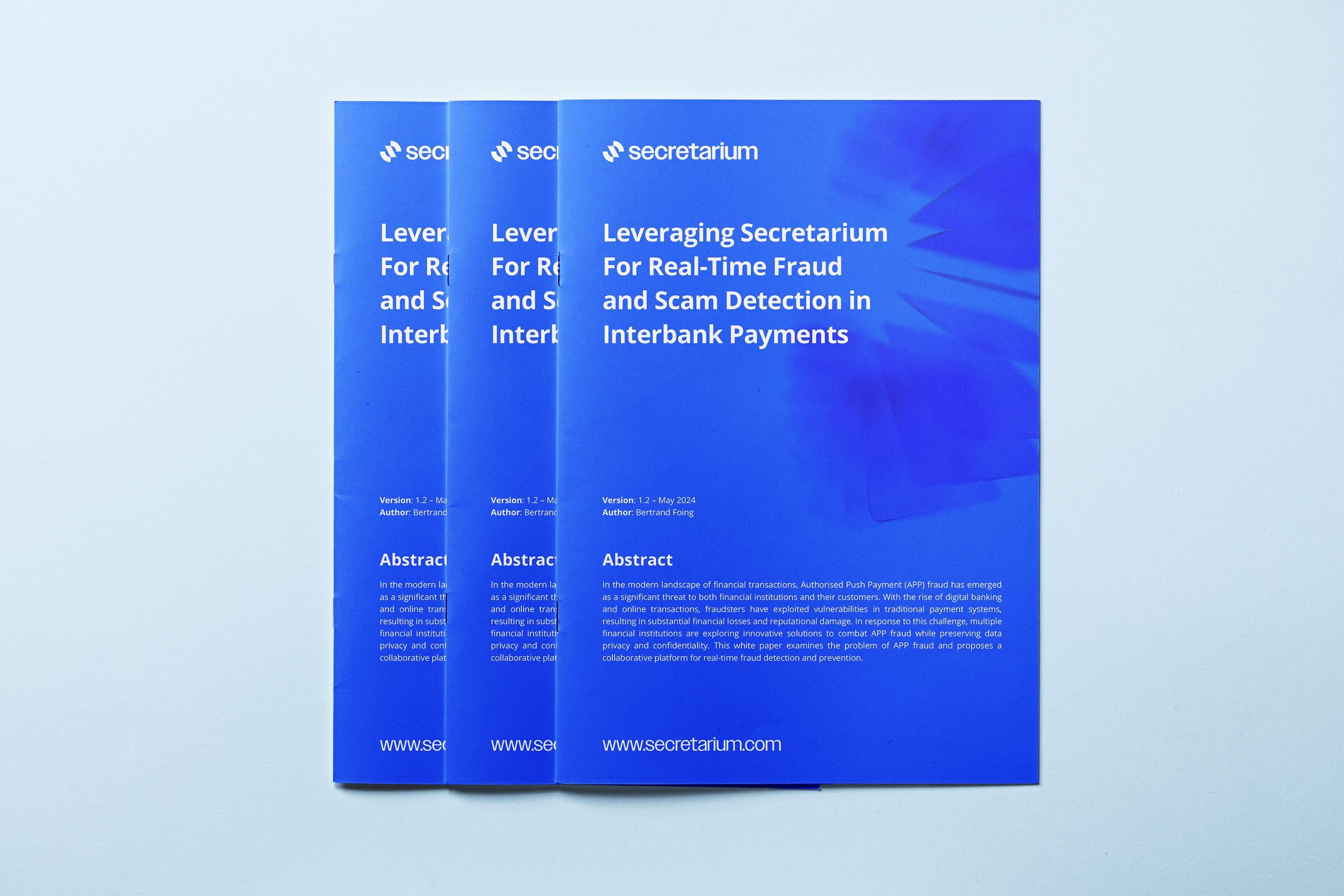Fraud & Scam
A collaborative approach to financial crime detection and prevention would significantly improve accuracy and efficiency.
Fraud & Scam Detection
In recent years, the financial industry has witnessed a surge in Authorised Push Payment (APP) fraud, posing significant challenges to financial institutions and their customers. APP fraud occurs when individuals are deceived into authorising the transfer of funds from their own accounts to those of fraudsters.
Despite efforts to prevent and detect APP fraud, it remains a pervasive threat, leading to substantial financial losses and eroding trust in financial institutions. Fraud detection methods, such as rule-based systems and transaction monitoring, have limitations in identifying sophisticated fraudulent activities in real-time. As a result, financial institutions are increasingly turning to innovative data collaboration approaches to enhance their capabilities. However, legal barriers, such as those related to data privacy, and difficulties around the ownership and governance of cross-jurisdiction facilities, have prevented the emergence of global solutions.
By allowing data to be processed in encrypted form, Secretarium enables secure computation without exposing sensitive information to unauthorised parties or compromising competitive integrity. In this white paper, we propose a promising platform for fraud detection in interbank payments, leveraging the collaborative computing capabilities of Secretarium to compute risk ranks in real-time, and enabling financial institutions to proactively identify and mitigate fraudulent transactions.
Overcoming Siloed Approaches
An effective solution for combating fraud and scams goes beyond individual risk management systems operated by payment service providers (PSPs) in isolation. While various privacy-enhancing technologies (PETs) have been explored over the years, some approaches have proven to be unsuitable due to their limitations in facilitating collaborative data analysis and correlation.
Keeping data siloed may seem simpler from a regulatory and compliance standpoint, but it inherently limits the effectiveness of fraud detection efforts. Pooling data from multiple sources allows for the aggregation of diverse information, the temporality, and the correlation of data points, enabling the early detection of patterns and anomalies. Only by analysing comprehensive insights from PSPs can potential fraud indicators be created, and suspicious activities accurately detected.
Conclusion
In the ever-evolving landscape of financial crime and fraud, the need for robust and innovative solutions has never been more pressing. The challenges faced by financial institutions in combating authorised push payment (APP) fraud and scams demand innovative approaches that can adapt and evolve in real time to protect financial institutions and their customers. The persistence of financial crime highlights the limitations of traditional fraud detection methods and underscores the critical need for a proactive, collaborative, and technologically advanced solution. The proposed approach, rooted in the principles of confidential computing and privacy-enhancing technologies (PETs), offers a transformative pathway to real-time fraud detection and prevention in interbank payments.
By enabling customer privacy, by safeguarding data integrity, and by facilitating secure data collaboration, Secretarium empowers financial institutions with the building foundations for new financial crime services. These collaborative approaches enable institutions to leverage collective insights, signals, and intelligence, augmenting their ability to identify and respond to emerging threats.
Furthermore, the integration with existing systems and the adoption of a unified ledger approach enables seamless interoperability between jurisdiction-tailored systems, fostering cross-system and cross-border collaboration. This global scale platform is complemented with secure rooms to enable advanced investigations, facilitate controlled data disclosure between institutions and in-depth analysis of suspicious activities.
As financial crime continues to evolve, embracing innovative solutions like the proposed approach is essential for staying ahead of threats and protecting the interests of institutions and customers alike. The time has come for financial institutions to collectively innovate and collaborate, leveraging cutting-edge technology to address fraud and scams holistically. Together, let us forge a future where financial crime is systematically detected, all while preserving the rightful privacy of financial institutions' customers.
Get in touch
If you want to know more about our technology, please don't hesitate to schedule a free demo with our experts.
Read next
We actively engage in highly innovative projects. Explore our latest publications featuring our cutting-edge technology.




.png)


.png)